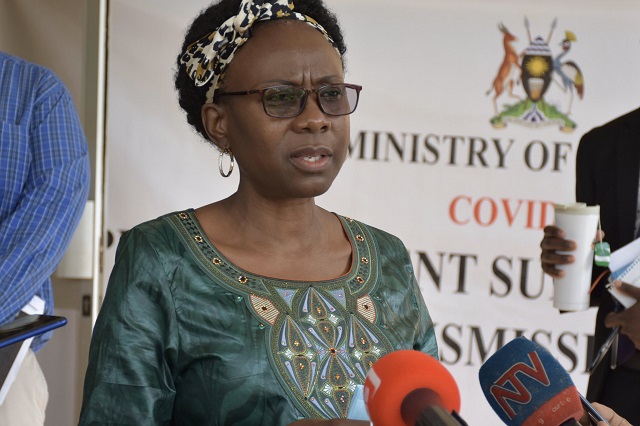
Kampala, Uganda | THE INDEPENDENT | The Ministry of Health is still struggling with inaccessibility to the COVID-19 vaccines, even though many vaccination points have sprouted out in different sites around Kampala.
So far, only 2.3 million doses of COVID-19 vaccines have been administered with majority of people getting only one of the two jabs. Less than 600,000 have been fully vaccinated with two jabs, far below the target of vaccinating 10 per cent of the target population by end of September, which was set by the World Health Organization. Uganda had targeted to vaccinate 22 million Ugandans.
Disregarding concerns of vaccine hesitancy, health minister Dr Jane Ruth Aceng told journalists on Wednesday that they haven’t reached as many elderly people and teachers as they ought to have. She blames this on the existence of few vaccination sites especially in upcountry districts.
Aceng said they are now seeing more women and children getting newly infected especially in areas of Teso and added that they have received feedback from the elderly complaining of long distances to vaccination sites.
For the elderly, according to figures, while they had planned to vaccinate up to three million, only 1.7 percent have turned up and Aceng says they are now re-working their plan to have more vaccination campaigns in regions such as Teso, Acholi, and Lango sub-regions which have been seeing an increase in cases since September. In these areas, the increasing infection rates are attributed to mass gatherings for weddings, burials and weekly markets.
Now, Aceng says they plan to have fully vaccinated up to 4.8 million people by end of the year and that between now and December, they expect a major increase in stock, adding to the already received 5.6 million doses of different vaccines.
The expected batches include more than 5.3 million doses which will be got through donations from China, Belgium, France, European Union and the US. The minister says that the country will also buy 1.2 million doses of the Johnson and Johnson vaccine, and 2.6 million other doses of the Sinopharm vaccine from China.
However, with the mix of more than 13.5 million doses of vaccines that will be in circulation by end of the year, the World Health Organization country representative Dr Tegnen Woldermariam warns the public against mixing vaccines.
He said the only vaccines that have been studied to be safe even with mixing are AstraZeneca as the first dose and Pfizer/BioNTech vaccine as the second dose. Even with this evidence available, he says people should not mix vaccines.
Meanwhile, Uganda has started a study to establish whether it’s safe to mix and match jabs and Virologist Misaki Wayengera who is spearheading the research says they are still in the very early stages of finalizing with funding and ethical requirements.
*****
URN
 The Independent Uganda: You get the Truth we Pay the Price
The Independent Uganda: You get the Truth we Pay the Price


